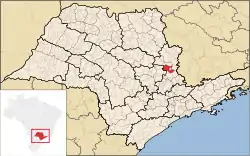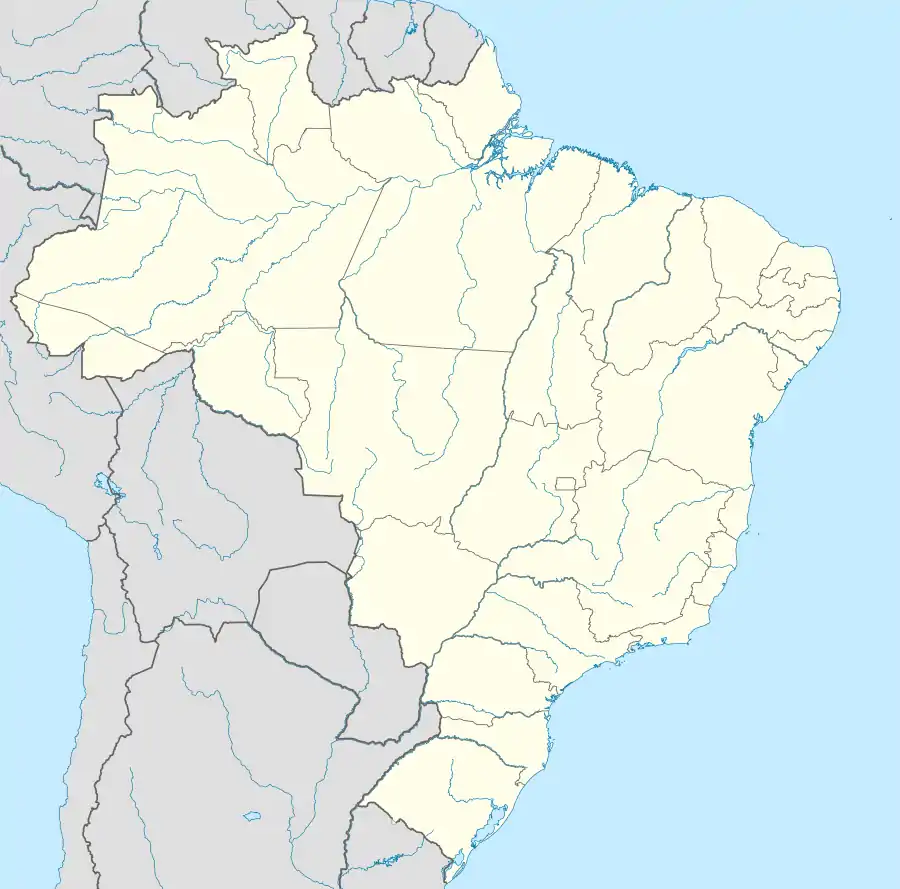Mogi Guaçu
Mogi Guaçu is a municipality in the state of São Paulo in Brazil. The population is 153,033 (2020 est.) in an area of 813 km2 (314 sq mi).[2] The city is at an average elevation of 591 m (1,939 ft) above sea level. Mogi Guaçu is a place name that probably originates from the Tupi language. It means "large river of snakes".[3] The city was founded on April 9, 1877.
Mogi Guaçu | |
|---|---|
 Flag  Coat of arms | |
 Location in São Paulo state | |
 Mogi Guaçu Location in Brazil | |
| Coordinates: 22°22′19″S 46°56′31″W | |
| Country | Brazil |
| Region | Southeast |
| State | São Paulo |
| Government | |
| • Mayor | Walter Caveanha (2013–2017) |
| Area | |
| • Total | 813 km2 (314 sq mi) |
| Elevation | 591 m (1,939 ft) |
| Population (2020 [1]) | |
| • Total | 153,033 |
| • Density | 190/km2 (490/sq mi) |
| Time zone | UTC-03:00 (BRT) |
| • Summer (DST) | UTC-02:00 (BRST) |
| Postal code | 13840-000 |
| Area code | +55 19 |
| Website | www |
The municipality contains the 469 hectares (1,160 acres) Mogi-Guaçu Biological Reserve, a fully protected conservation area created in 1942.[4]
The Autódromo Velo Cittá is a motorsport racetrack opened in 2012, located 20 km (12 mi) northeast of the city of Mogi Guaçu.
Sister Cities
References
- IBGE 2020
- Instituto Brasileiro de Geografia e Estatística
- NAVARRO, E. A. Dicionário de tupi antigo: a língua indígena clássica do Brasil. São Paulo. Global. 2013. p. 588.
- Núcleo de Pesquisa Reserva Biológica de Mogi Guaçu (in Portuguese), Secretaria do Meio Ambiente do Estado de São Paulo, retrieved April 28, 2016
This article is issued from Wikipedia. The text is licensed under Creative Commons - Attribution - Sharealike. Additional terms may apply for the media files.